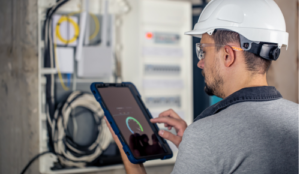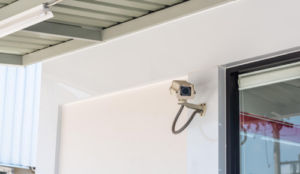All electrical installations and systems will require testing with age and prolonged use. Without testing, electric units may malfunction and pose a risk. Regular inspections and tests should be carried out to determine their condition and as a prevention tactic. These safety checks are called periodic inspections and must occur every five years.
This article will explain what period testing is, how it works, and what happens during the testing process. Regular electrical testing is incredibly important for landlords, homeowners, and anyone in between. Periodic electrical testing allows you to easily sell or buy a property without the potential fire hazard of unreliable electrics. Our guide on electrical testing will tell you about its importance and help you improve your home safety standards.
Periodic Inspections and Testing
Like many other property safety laws, electricians should conduct periodic inspections of rental properties every five years. This is a legal requirement for private landlords, and you could face a fine if you do not comply. However, ideally, electrical inspections should be given in between tenancies in order to maintain safety requirements. So, even if five years is the legal requirement, it’s best to get your electrics checked as often as possible.
Periodic Inspections
Periodic inspections are not only a legal requirement, but are also a crucial step in ensuring your property’s electricity is sufficient. A periodic inspection involves a few requirements, including:
- Checking if electrical circuits and equipment are overloaded
- Checking for potential electric shock risks and fire hazards
- Ensuring there is no defective electrical work
- Highlight any lack of earthing and bonding
Once a periodic inspection is complete, you will receive a report detailing all the information and results. This report is called an Electrical Condition Report (EICR). These reports aim to highlight the main issues, find any apparent or hidden damage, ensure your wiring meets the IET wiring regulations, and provide a consistent installation record at the time of the inspection and future inspection dates.
How Often is a Periodic Inspection Required?
A periodic inspection is required every five to ten years, however you can request an electrical inspection at any time. If you’re letting or renting a property, you must do an inspection at the end of each tenancy. Additionally, you will need an electrical inspection if you’re selling a property or buying an occupied property. This is so there are no risks to the property for the new owner and to ensure everything will remain safe.
When it comes to time frames, your electrics need inspection and testing as often as follows:
- One year for a swimming pool
- Three years for a caravan
- Five years for private lettings
- Ten years for an owned home
These time frames differ due to the property laws and regulations in place. For example, more laws are in place for rented properties to ensure landlords comply with safety precautions.
What Happens During a Periodic Inspection?
During a periodic inspection, your registered electrician will complete a series of tests and checks to ensure your electrics are safe and compliant with the law. It is necessary to check the condition of the electrics against the UK standard for safety, also known as BS 7671. Look at what your electrician may do during the periodic inspection and testing.
Firstly, a periodic inspection should check the adequacy of your wiring, including the earthing and bonding. Checking electrical wiring will help ensure there are no fire risks to your property and your electrics remain safe.
A registered electrician will also check the condition and suitability of the switchgear and controlgear. An old fuse box with a wooden back, cast-iron switches, or a combination will all need replacing as it does not adhere to the electrical requirements.
The wiring system and condition require inspection and testing. Black rubber-coated cables phased out in the 1960s may still be present in some homes. You may also find lead and fabric-coated wires. Both types of casing will need replacing, as modern cables have longer-lasting, safer insulation.
Additionally, an electrician will check the condition and capabilities of the switches, sockets and light fittings. These are internal electricals and must be safe for appliances to work correctly and safely. Round-pin sockets, fabric-coated cables from ceiling lights, and black switches and sockets in skirting boards will all require replacing at some point, as they are unsafe.
Finally, an electrician will check the general wear and tear damage and potential risks. If your electrician spots any issues that may pose future risks, they may recommend a replacement.
Electrical Deterioration
It is natural for some appliances to deteriorate quicker than others. Every electrical installation will decay, but through periodic testing and inspections, you will know which ones may need action. The rate of deterioration will depend on the external influences that affect the installation, the activities performed in the nearby area, and the general wear and tear expected to occur during use.
For example, a light fixture may have less wear and tear than switches or sockets, as light fixtures are less likely to be touched.
What Happens After an Electrical Inspection?
At Dependable, your safety is our priority. We can assure you that your property meets the UK electrical standards, as well as our standards. Any causes for concern, and we will take immediate action, whether this calls for a replacement or a quick fix.
After your periodical inspection and test, a qualified electrician will issue an electrical installation condition report. This report will give you a detailed list of any observations, defects, and future issues. If anything is severe, we will declare your electrics unsatisfactory and take immediate action.
We strive to keep you and your properties safe and compliant at Dependable. With over twenty years of experience, let us be the ones you depend on.




